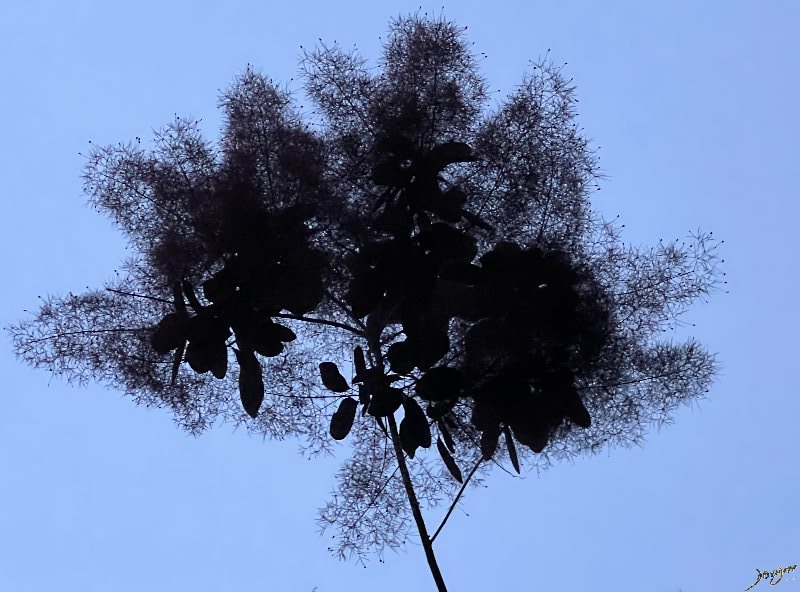
Ashley Davidoff TheCommonVein.net
Smoke tree, also known as smokebush or Cotinus coggygria, is a flowering shrub or small tree native to southern Europe, central China, and the Himalayas. It is popular in gardens and landscaping for its unique appearance and ornamental value.
The smoke tree gets its name from the feathery plumes of flowers it produces, which resemble puffs of smoke or a cloud of mist. These flower clusters appear in early summer and can range in color from pink to purple, creating a striking visual display. The leaves of the smoke tree are generally oval or elliptical, with a reddish or purplish tinge that intensifies in the fall.
In terms of cultivation, smoke trees are relatively easy to grow and are adaptable to a range of soil types. They prefer well-drained soil and full sun exposure to promote healthy growth and abundant flowering. Pruning is often recommended to maintain a desired shape and to encourage the production of new growth. The smoke tree can be grown as a shrub or trained to grow as a small tree.
Smoke trees are valued for their aesthetic appeal and are often used as specimen plants in gardens, borders, or as part of mixed shrub plantings. They can also be grown in large containers. The colorful foliage and unique flower clusters make smoke trees a focal point in the landscape, particularly when planted in groups or mass plantings.
Aside from their ornamental value, smoke trees do not have significant medicinal or culinary uses. However, they are generally not toxic to humans or animals.
Overall, smoke trees are prized for their striking appearance and are a popular choice among gardeners and landscapers looking to add a touch of drama and visual interest to their outdoor spaces.
